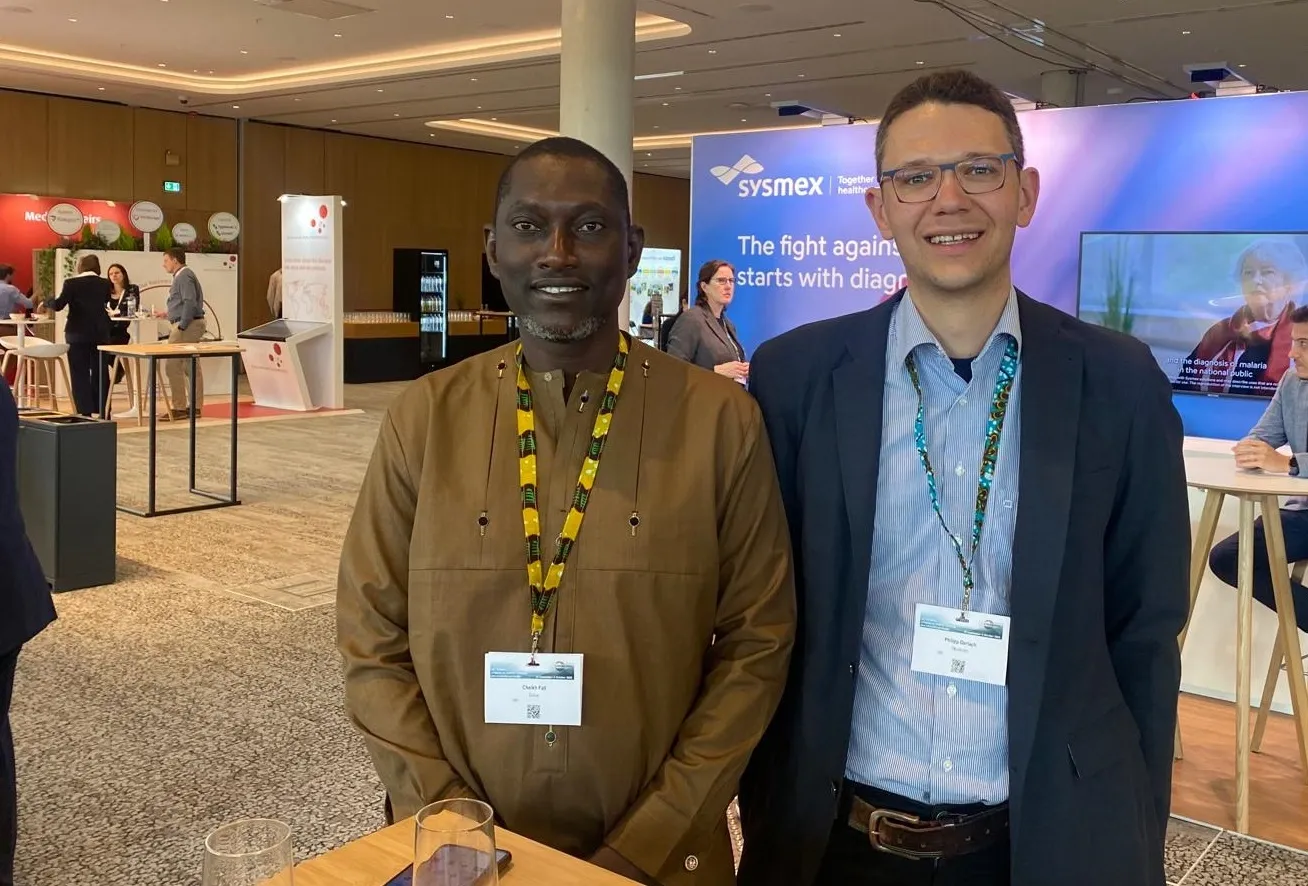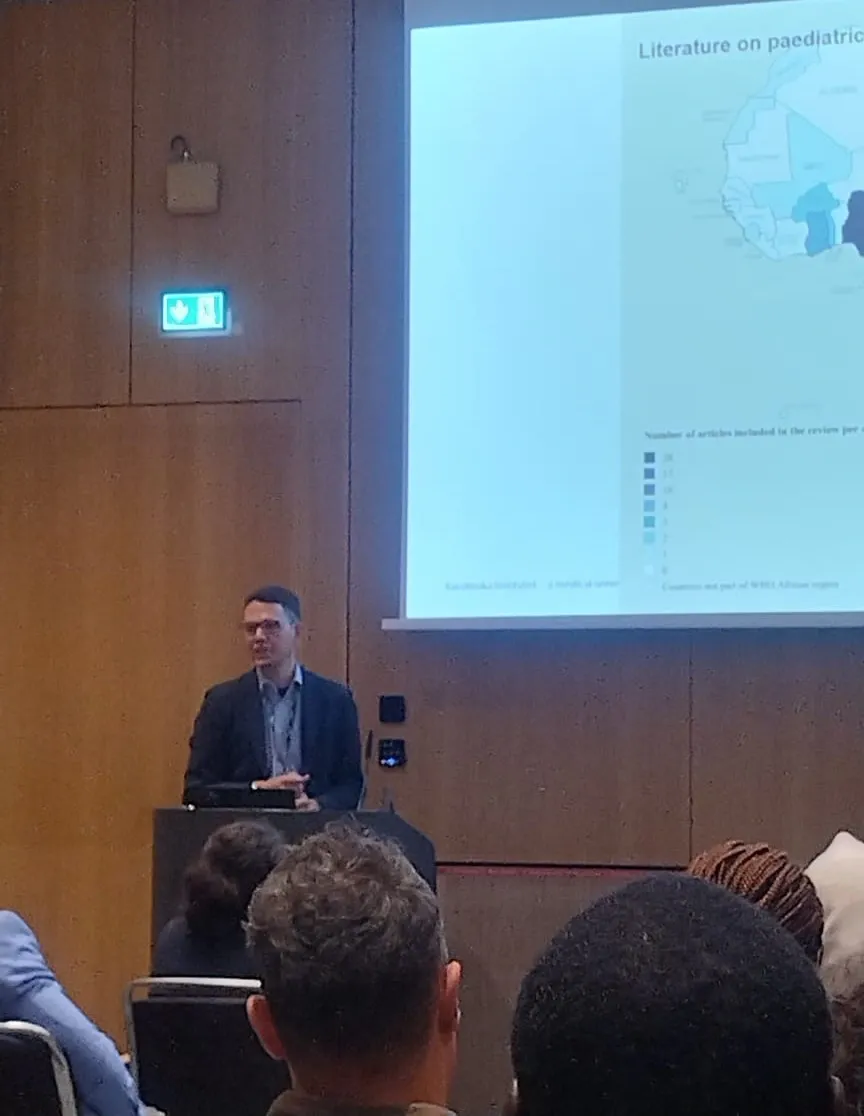Philipp Gerlach sheds light on overlooked childhood infection at Tropical Medicine Conference

At the 14th European Congress for Tropical Medicine and International Health in Hamburg, Philipp Gerlach presented key findings from his Global Health master’s thesis, shedding light on the burden and diagnostic challenges of childhood urinary tract infections in the WHO African Region. His presentation highlighted the urgent need for improved diagnostic tools in resource-limited settings.
Prospective PhD candidate Philipp Gerlach presented the results of his Global Health master’s thesis on “The epidemiology, aetiology, and diagnostics of childhood urinary tract infections (UTI) in the WHO African Region” in a talk on 1 October 2025 at the 14th European Congress for Tropical Medicine and International Health (ECTMIH) in Hamburg, Germany.
The conference was hosted by Bernhard Nocht Institute for Tropical Medicine BNITM, the German Society for Tropical Medicine DTG, and FESTMIH, the Federation of European Societies for Tropical Medicine and International Health. It featured expert sessions on various topics related to the field with researchers and policy makers from around the globe.

Philipp completed his master’s degree under the supervision of Giulia Gaudenzi, Tobias Alfvén, and Phuthumani Mlotshwa. In his work, Philipp investigated and brought together findings from 87 articles and 15 countries within the WHO African Region. He showed that the prevalence of urinary tract infection, mostly caused by gram-negative bacteria, is notably high—particularly among children under the age of two.
Published data confirmed that UTI diagnostics can be tricky due to difficulties in sampling and the lack of clear cutoffs. This is particularly severe in settings where laboratory facilities are limited, and point-of-care devices such as urine dipstick and microscopy are unavailable.
This finding provides a segue into one of the research group’s latest multi-centre trials, the UTI-Diag project, which explores novel point-of-care diagnostic methods in healthcare facilities across Senegal and Cameroon. The study is conducted in collaboration with a consortium of eleven international partners.
During the same session, titled “Diagnostic Innovation for Infectious Threats,” Dr. Cheikh Fall, Scientific Coordinator at Institut Pasteur de Dakar (IPD) and lead of one of the UTI-Diag project’s work packages, presented the current outline of the project. The presentations by Cheikh and Philipp sparked a lively and insightful discussion around potential explanations for the findings and the challenges that lie ahead in addressing childhood UTIs—an often overlooked infectious disease.
